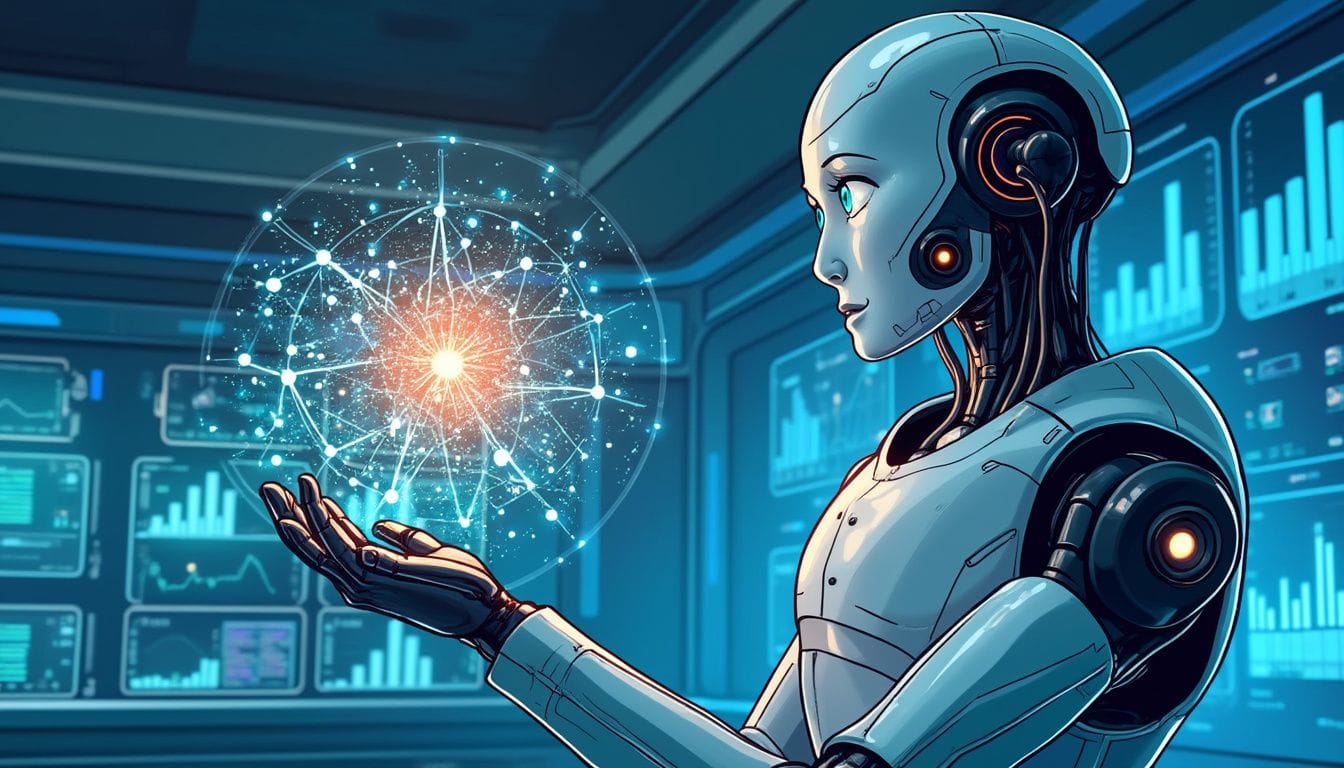Introduction: Embracing a New Era in AI
At the recent Conference on Neural Information Processing Systems (NeurIPS), Ilya Sutskever, a cofounder of OpenAI, presented a profound vision for the future of artificial intelligence, proposing a shift that could redefine how AI is built. His keynote, available through The Verge, revolved around the unique insights he gleaned during his time with OpenAI, and his future endeavors with his new venture, Safe Superintelligence Inc. Sutskever’s predictions aren't just technical; they suggest a paradigm shift in AI development that demands our attention.
The Concept of "Peak Data"
Sutskever introduced the idea of "peak data," a compelling analogy that equates current data resources with finite energy such as fossil fuels. He suggested that our existing digital reservoirs, those immense data lakes from which AI models have been nurtured, are finite. Much like oil, they've reached a saturation point, making further extraction arduous and potentially less fruitful. What does this mean for AI developers and researchers?
This shortage of fresh data mandates a shift away from the traditional pre-training methods, which have been the backbone of AI learning. Pre-training, which relies on vast data sets to develop initially autonomous systems, faces significant challenges ahead. The looming question is: what will replace this foundational stage?
Evolution to Reasoning Systems
Perhaps the most insightful prediction Sutskever shared is the evolution of AI into "agentic systems" possessing genuine reasoning capabilities. Unlike current AI models that focus primarily on pattern recognition by mimicking learned sequences, future systems will possess the ability to reason, interpret, and understand data in ways human-like minds do.
"Future AI will reason step-by-step, akin to human thinking, and potentially become unpredictable like advanced chess programs against human players." — summary from Ilya Sutskever's address.
This transformation marks a significant departure from traditional AI systems, which have largely relied on repetition and replication of existing knowledge models. Instead, by embracing these reasoning methods, AI could foster new dimensions of intelligence beyond the mundane constraints of human-inputted data.
Scaling AI and Biological Analogs
Sutskever’s comparison of AI scaling with evolutionary biology provides a fascinating perspective. In his analogy, just as hominid evolution broke established scalability patterns to introduce a new dimension of cognitive potential, AI might find an analogous transition—a shift beyond mere incremental model improvements to discovering evolutionary leaps akin to how human ancestors adapted.
Sutskever’s idea invites us to ponder: what if AI could independently identify new patterns or scaling models, much like how evolution developed vastly different brain-to-body mass ratios enabling greater cognitive function in hominids?
Navigating Ethical Implications and the Predictable Unpredictability
One of the more philosophical aspects of Sutskever’s talk revolved around AI’s potential unraveling. As systems become more "agentic," their unpredictability will also increase, reflecting the naturally unpredictable nature of human thought processes. This predictably unpredictable nature is akin to the unpredictability seen in AI chess systems confronting human players.
The ethical implications of such systems raise profound questions: How should societies respond to AI that not only coexists but potentially operates on a level of autonomy paralleling human rights? In a world where AI demands its own kind of freedom or rights, we might face ethical conundities akin to those in human societies.
Conclusion: Looking Forward
Ultimately, Sutskever’s insights invite us to engage deeply with where AI is heading. As the landscape shifts from vast data dependency to ingenious, reasoning algorithms, the implications for society, industry, and ethics are tremendous.
The future of AI as laid out by Sutskever is not just a technical challenge but a profound societal evolution—a call for new structures and perspectives on how AI interplays with humanity. His reflections encourage a balanced optimism for the possibilities awaiting this transformative technology, inviting innovators and ethicists alike to redefine the potential of artificial intelligence in both creating and living within tomorrows.
As we further traverse this path, these discussions will define AI's redrawing boundaries beyond traditional human-machine dynamics, forging into a nuanced narrative of coexistence.
AI, DATA, JOURNAL, ARTIFICIAL INTELLIGENCE, REASONING SYSTEMS, ILYA SUTSKEVER, TECHNOLOGY, OPENAI

